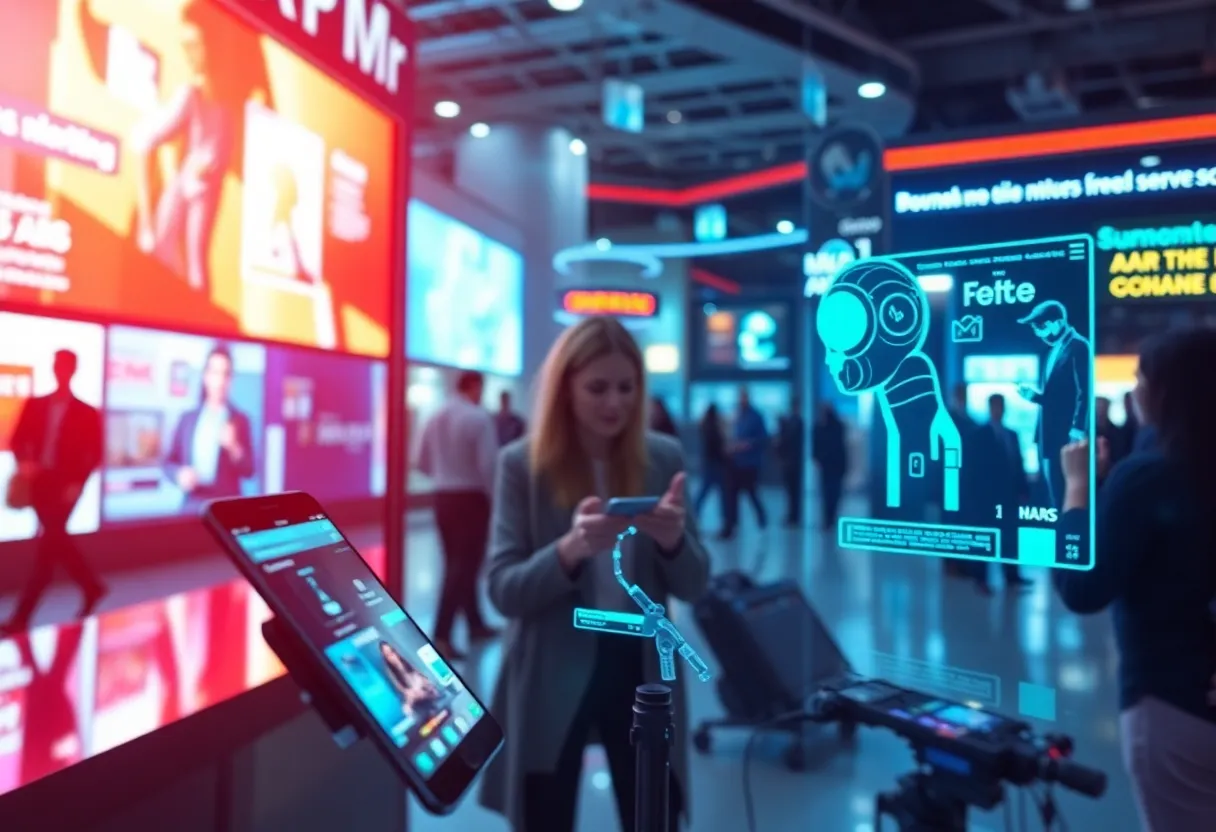

Hyper-personalized ads represent the future of digital marketing, creating tailored experiences for consumers.
Article Sponsored by:
Real Internet Sales is a digital marketing agency located in Columbia, South Carolina. We specialize in website design and development, SEO, social media management, online advertising, AI integration, and workflow automation. Our services also include affiliate marketing and digital strategy.
Real Internet Sales also offer specialized programming for real estate firms, using IDX and RETS feeds to automatically populate MLS properties on their websites for improved property listings and sales. We also work with clients in the restaurant, tourism, and e-commerce industries to enhance their digital presence and streamline operations.
As digital marketing evolves, brands are shifting from generic advertising to hyper-personalized ads that leverage AI and consumer data. This approach enhances engagement by offering tailored experiences that connect better with consumers. While there are challenges such as privacy concerns and implementation costs for smaller businesses, the financial benefits and consumer satisfaction make hyper-personalization a promising trend for the future of advertising.
In today’s fast-paced digital world, the way we approach advertising is undergoing a radical transformation. Instead of hitting consumers with one-size-fits-all ads, brands are now embracing hyper-personalized ads, which are revolutionizing digital marketing by diving deep into consumer behavior and preferences.
Gone are the days when businesses relied solely on generic advertising strategies. Hyper-personalized ads leverage artificial intelligence (AI) and machine learning (ML) to analyze vast amounts of data and consumer insights. The result? Advertising that feels more like a natural conversation rather than something intrusive or pushy.
As we head towards 2025, the demand for tailored experiences is only set to rise. Consumers today expect brands to know them—what they like, what they need, and even what time of day they might be interested in particular products. And when brands fail to deliver these personalized experiences, the backlash can be swift, often resulting in negative comments and a dent in reputation.
Marketing teams are now making hyper-personalization a central strategy, focusing on establishing meaningful connections with their audience. This approach utilizes detailed consumer data, encompassing browsing habits, purchase history, and even real-time location context. It’s fascinating how deep marketers can go to understand consumers!
Using psychological principles such as the mere exposure effect, brands can create a sense of familiarity, enhancing positive feelings towards them. They can also capitalize on confirmation bias, aligning ads with consumers’ pre-existing beliefs. This makes the ads appear more credible, leading to greater consumer satisfaction.
Businesses are not just seeing emotional benefits; they’re also raking in financial gains. Research suggests that personalized marketing can boost revenue by up to 15%. When consumers feel understood and valued, they’re much more likely to make a purchase. Doesn’t that make sense?
However, not everyone is on board with hyper-personalized advertising. Some consumers find these ads invasive or even uncomfortable. This raises critical ethical concerns regarding privacy, especially given how much data is collected to create these tailor-made experiences. Brands need to navigate this tricky landscape wisely by being transparent about their data collection practices. Trust is essential, and they must comply with privacy regulations to keep consumers’ confidence intact.
Implementing successful hyper-personalized advertising isn’t a walk in the park. It requires hefty investments in technology and resources, which can be quite daunting for smaller companies. It’s a delicate balancing act—marketers must use advanced data analytics while ensuring that they’re not exploiting consumers’ vulnerabilities. Those who manage to strike that balance can foster stronger connections with their audience, enhancing loyalty and long-term relationships.
With ongoing scrutiny over data privacy laws, like GDPR in Europe, the AdTech industry is rapidly evolving. AI-driven insights and location-based targeting are at the forefront, improving the relevance and effectiveness of ads.}
Big brands are already reaping the rewards of hyper-personalization. Starbucks has gained recognition for using real-time data to send tailored promotions via their app. And we can’t forget the successes of Cadbury and Amazon, both of which have experienced significant increases in engagement and conversion rates thanks to hyper-personalized strategies.
As we embrace these new advertising strategies, it’s evident that the future of marketing will shift away from traditional broad audience segmentation. Instead, brands will focus on detailed targeting based on individual behaviors and preferences. Emerging tools like AI simulations and digital twin technologies allow marketers to test and fine-tune personalized strategies before they even hit the market.
For brands eager to differentiate themselves and enhance customer experiences in the digital landscape, hyper-personalization is expected to be a key component. By applying ethical practices in their use of AI and data, businesses can build trust and deliver genuine value to their audiences. The world of advertising is certainly evolving, and it’s thrilling to witness this transformation unfold!

7001 St Andrews Rd #329 ,
Columbia, SC 29212,
United States
Phone: (+1) 803 708 5514
News Summary Michigan State Police leaders, Colonel Grady and Lieutenant Colonel Brimacombe, face calls for…
News Summary Members of Detroit's film industry are advocating for the restoration of state incentives…
News Summary Detroit has experienced a significant population increase for the second consecutive year, with…
News Summary Havis, Inc. has launched the SDS-ZEB-504, a new Stationary Docking Station designed for…
News Summary Star SU, an affiliate of Star Cutter Company, has announced the appointment of…
News Summary U.S. Transportation Secretary Sean Duffy has revealed that Newark Liberty International Airport may…